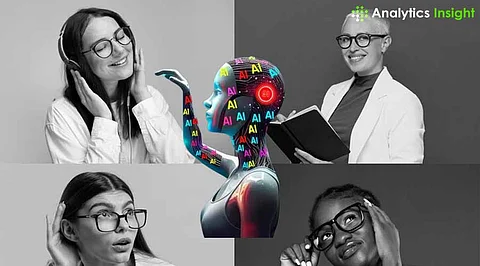

Generative AI focuses on the creation of new material from existing data. Advanced models of machine learning undertaken in generative AI systems can make digital assistants more intuitive, personalized, and efficient. In this article, we will explore the potential benefits and challenges of the utilization of generative AI for digital assistants.
The impact that generative AI is likely to have on digital assistants would be in the areas of personalization. They are rather basic digital assistants, reliant on static, pre-programmed responses and contextual understanding.
Generative AI can identify the context of huge amounts of data to understand the preferences and habits of users better than the traditional ones.
This would make digital assistants provide more personalized and relevant responses, elevating user satisfaction and engagement.
For instance, Google Assistant with Bard amalgamates generative AI to bring a far more intuitive and more intelligent assistant, which also understands and adapts to the specific needs of each user.
This means that digital assistants would be able to predict the needs of the users and may even present customized recommendations or manage complex tasks all alone.
Generative AI propels the capabilities of NLP in digital assistants, making it easier for them to understand and generate human-centric text. As a result, it propels them towards even more meaningful conversation with the users, by being intuitive and flowy.
The advanced NLP models are capable of gleaning nuances, idioms, and context. Therefore, interactions become smoother and more intuitive.
For instance, only recently have digital assistants in AI started to be able to carry out conversations consisting of several turns. Thus, they recall previous interactions and use this information to produce a coherent and contextually relevant answer.
This is important especially for applications such as customer service, as the ability to understand and respond to user concerns correctly is very vital.
Thus, generative AI can automate so many routine activities that would leave less time to concentrate on strategic activities by the user. It means digital assistants will be able to schedule meetings, monitor emails, provide reports, and even create content.
This would enhance productivity and be less burdensome on the cognitive load of the person.
For example, a commercial digital assistant can automatically dispatch emails based on communications with someone else, draft meeting agendas, and summarize what was said. This kind of automation will certainly optimize many workflows and processes to make them much more efficient.
Generative AI excels at the creation of new content, whether in text, images, and even music. This capability can be tapped into by digital assistants to aid users in creative work.
For example, a writer may get help from a digital assistant brainstorming ideas, coming up with plot outlines, or even writing part of a novel. It could be useful for graphic designers in design concept generation or provide color schemes for an assignment.
In marketing, digital assistants could create more relevant content for use on social media posts, advertisements, and even email campaigns. This will save time while ensuring that the content was relevant to its audience, gathering better engagement and effect.
Then, generative AI can process large data sets in real time. And the good thing is, it could provide insights and even support decision-making activities, which is most beneficial in terms of finance, healthcare, or logistics, where information must be as correct and timely as possible.
For example, an AI-powered healthcare digital assistant will analyze the patient's data based on known health risks, suggest preventive measures, and even help in diagnosis. Such a generative assistant in finance would even look at market trends and provide investment advice on the basis of real-time data.
Although the potential of generative AI in digital assistants is enormous, so are some of the challenges and ethical considerations that come with these advancements.
Data privacy is one central issue here: generative AI works on gargantuan amounts of data, calling into question how that data is collected, stored, and used. Therefore, protecting user data and using it ethically are foremost considerations.
If the training data from which to develop the AI models contains biases, such biases are likely reflected in the output. That makes for a potential foul by the mechanisms behind areas like hiring, lending, or sentencing.
There is also the danger of dependence on AI. While generative AI can automate most tasks, some measure of control over automation is key to ensuring human oversight and intervention when necessary to avoid disastrous consequences.
Next, generative AI integrated with digital assistants, steps into what will certainly be the next iteration in the cycle of evolution of AI. These assistants are becoming increasingly capable and intelligent, fairly close to replacing the human elements in every way of our lives.
There will surely be a better level of productivity and creativity, also personal support on any issue such as nutrition and exercise, sleep and wake-up times, time management, or relaxation, and finally, individualized consultations and interpretations.
However, it is a fact that this step should be taken with a lot of prudence. Issues and ethical dilemmas associated with generative AI should be solved so that good things like higher efficiency, reduced costs, and fine information usage can flow effectively.
We might then be able to tap into the capability of generative AI for creating beyond mere digital assistants and to make innovations of thousands in industries.
